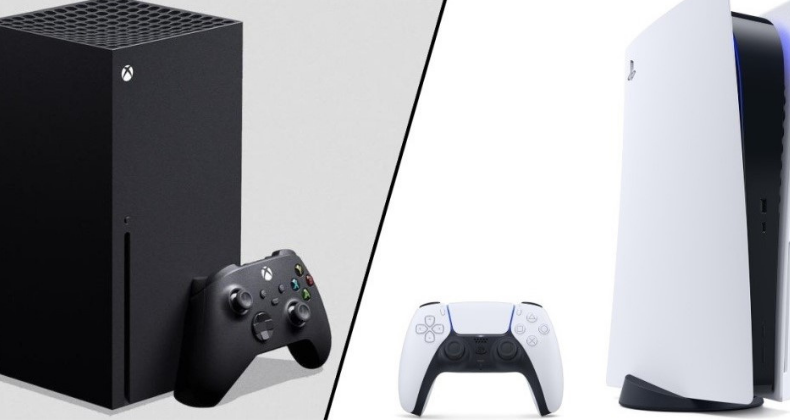
Will Vidgame Platform Shift Raise Licensing Prospects?
When next-generation Microsoft Xbox Series X and S and Sony PlayStation 5 videogame consoles launch in November, they will enter an ecosystem radically-changed from when the last major platform shift occurred seven years ago.
Holistic business
In the interim, subscription services, streaming, downloadable additions and update and in-app purchases of virtual goods all have become integral parts of the gaming landscape. And licensed goods tied to major franchises and brands are being thought of more holistically within the gaming business, whether merchandised together with the games and consoles or — inevitably at some future point — via “Buy” buttons integrated into a game’s universe.
Both new platforms will be available in two versions, with ($499 for Xbox, $399 for PS5) and without ($299 each) Blue Ray drives to accommodate physical media. By one estimate, Sony is projected to sell five million units globally this year and have a base of 67.3 million by 2024, while Microsoft is expected to sell 3.9 million consoles and develop an installed base of 44.3 million by 2024.
Launch boost
Consumer products tied to both individual games and the hardware brands themselves will be an integral part of many marketing campaigns. “The new platform launches from Sony and Microsoft will help push the awareness of any existing gaming properties that will be launch titles,” said Marc Mostman of Most Management. “Launch titles should experience the benefit of the marketing push behind the new console releases.”
When Ubisoft released a trailer in April for the next-generation “Assassin’s Creed Valhalla” title, it also promoted a collection of hoodies and t-shirts from licensee Difuzed that went on sale in the summer, with a new assortment ready when the new consoles and the game hit the market in mid-November. Pre-orders for both consoles began earlier this month.
Netflix for gaming
“With more sophisticated machines and streaming your console library of games will be available on your laptop and phone and it turns into a situation where gaming has become more accessible than it has ever been,” says Daniel Amos of Difuzed, a licensee for both the games and the hardware brands. “We have arrived at this Netflix-for-gaming situation where it is entertainment for all” in the form of cloud gaming services such as Microsoft’s xCloud (integrated into Xbox Game Pass Ultimate earlier this month) Google’s Stadia, and several others. Amazon just announced its own version.
Downloadable updates that allow the addition of new worlds and characters change the equation for the licensing community. “Videogames have become less about ‘launch and leave it’ but rather ‘launch and sustain.’ Over a period of time, that is good for licensees because it is an expensive business, so we want to see a long term,” says Amos. “We know the game will come out and it will be sustained and supported by the developer, so we have a longer period of time to sell our merchandise.”
Game properties are infiltrating more merchandise categories because “now retailers are understanding how gaming shapes pop culture,” says Amos. “Anyone who is into gaming might want to buy not only t-shirts, but bedding, footwear and gifts and accessories, and for some time they haven’t been able to do that through the retailers they visit on a daily basis.”
That increase in licensed categories has been evident even the run up to the introduction of new consoles. Tesco started sales in the UK of Finsbury Food Group’s Xbox controller celebration cake earlier this month, Primark has been merchandising Xbox and PlayStation apparel alongside Microsoft’s Minecraft title and licensee Fashion UK is selling licensed children’s apparel for both platforms, says Ben Parker of Beanstalk UK.
“Retailers are picking up on the brands in a way that they haven’t before. We have Xbox and PlayStation brands taking center stage in places where major band or film t-shirts previously would have been,” says Parker. “Retailers now understand the size of these franchises more so than they have in the past. And the perception of a gamer has changed. At one point it would have been a teenager sitting on his own playing a game; now it’s a lot broader.”
That potential for a broader market has resulted in hardware and software companies taking a more integrated approach to licensing that’s resulted in retailers giving videogames prime display space in brick-and-mortar stores. Some retailers have been merchandising licensed goods alongside or near the consoles and games.
At launch, both Microsoft and Sony will be relying on nostalgia, largely on remastered versions of older titles, while those with new IP were mostly delayed until 2021. Sony will have “God of War” and Marvel’s “Spider-Man” at launch, both of which were released in 2018 along with “The Last of Us,” which debuted in 2013. For its part, Microsoft will have a remake of 2018’s “Forza Horizon 4” and “Gears 5”, with the new Halo title, “Halo Infinite,” delayed to 2021. But new IP is coming. Sony’s “Deatloop”, which was due in November, will instead be released in June 2021. Interestingly the title is being published by Bethesda Softworks, which along with its parent ZeniMax Media, was acquired by Microsoft earlier this month.

















